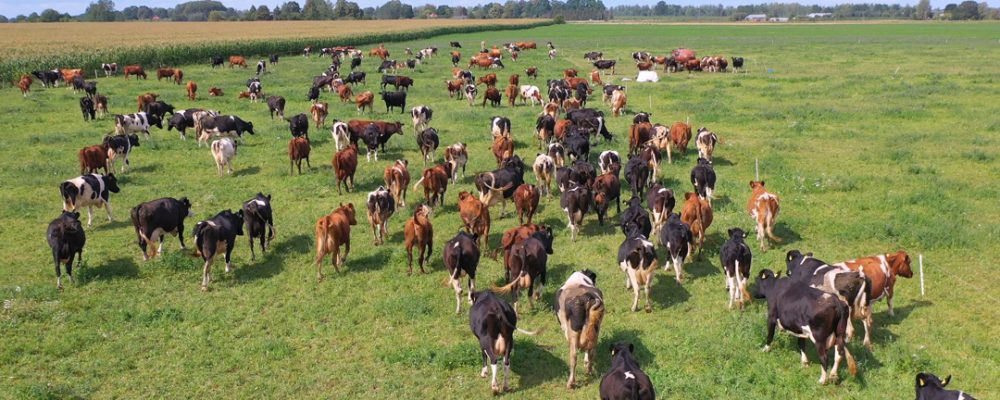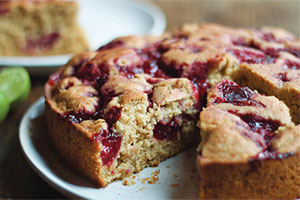Why do we need to export dairy?
- 6 April 2021
- The Vegan Society

It is well documented that the bulk of our emissions come from the agricultural sector, with our ruminant herds making up the majority of the methane. With Fonterra producing a whopping 20% of the total climate emissions, surely it is time we rethink the future of dairy, the future of sustainable living and how best to go about it?
As submissions close for the draft report from the Climate Change Commission, around 10,000 were received! This is a huge number for any submission process and shows that people are beginning to understand that climate change will impact us all. Many were disheartened by the draft report which seemed to indicate that our best goal was to reduce methane by less than 50% by 2050. Given that we have only until 2030 to make meaningful impact, this target seems to be too little too late.
In its draft report the commission suggested that a 15% reduction in the herds was required, yet somehow there would be no drop in profit or production? Dairy is currently our largest export earner, worth some $19 billion per year. The majority of these exports are not high quality dairy products feeding the world, as the MPI would have you believe, but instead is whole milk powder. This is produced from whole liquid milk at some considerable climate cost to us, using coal fired burners in the main for the process.
This milk powder is basically used as a cheap filler in processed foods, infant formula being a separate export dollar. Processed foods do not require milk powder. Milk is not particularly healthy for us, as those over the age of 5 should be weaned from this infant sustenance. The human body adapts well to whatever we throw into it but it certainly does better on some foods than others. Many people are lactose intolerant, especially non-caucasian races, who experience serious problems by continuing to follow inappropriate health guidelines.
One could question the need for exports at all? Why are we not being more self-sufficient? Our land is capable of growing more than enough plants to feed all of New Zealand and beyond. There are crops suitable to be grown in most parts of the country. It is possible to grow on hillsides, think of the enormous rice terraces in Thailand, or the mountains of Switzerland, covered with wheat and barley.
“We need to ask why we are destroying our high quality environment to produce low quality milk powder for processed foods.” Vegan Society spokesperson Claire Insley said, “The costs of clean up are not bourne by the industry and it is ordinary Kiwis who are paying the price. Our waterways are polluted and our health is suffering needlessly. Last year Covid gave us an opportunity to change the way we do things but we have continued with business as usual.”
Our horticultural exports last year were $8 billion and could certainly stand to increase if we wanted to put the effort in. So much of our arable land is not being utilised, so much of our native bush was cut down to make way for ruminant pasture lands. Would it not make logical sense to reduce our herds, turn the non-arable lands back to native bush, which captures more carbon than our pine plantations and isn’t subject to the timber industry.
Finally, it is well documented that our bodies fare much better when given a strongly plant-based diet, with minimal consumption of meat and dairy. There is little harm in not eating animal products at all, as plants can provide all the nutrition we need. After all, where do the animals get their protein and nutrients from? According to an Otago University paper a wholefoods plant diet could bring carbon emissions savings of up to 42%, confer a population gain of up to 1.5 million quality-adjusted life-years, and save our health care system up to $20 billion. Something not to be sneezed at and more than covers our dairy export figure.
Enjoyed reading this? We think you'll enjoy these articles:
What’s in a Trademark?
What’s in a Trademark? 29 March 2024 The Vegan Society As more companies start to become more aware of the ingredients in …
NZ Vegan Chocolate Awards 2024
2024 NZ Vegan Chocolate Awards 25th March 2024 The Vegan Society One of the most wonderful foods our planet has to offer …
Plum and Lime Cake
Liked this? We think you’ll enjoy these recipes: Katsu Tofu Katsu Tofu The Vegan BBQ The Vegan BBQ 1 2 3 … …




